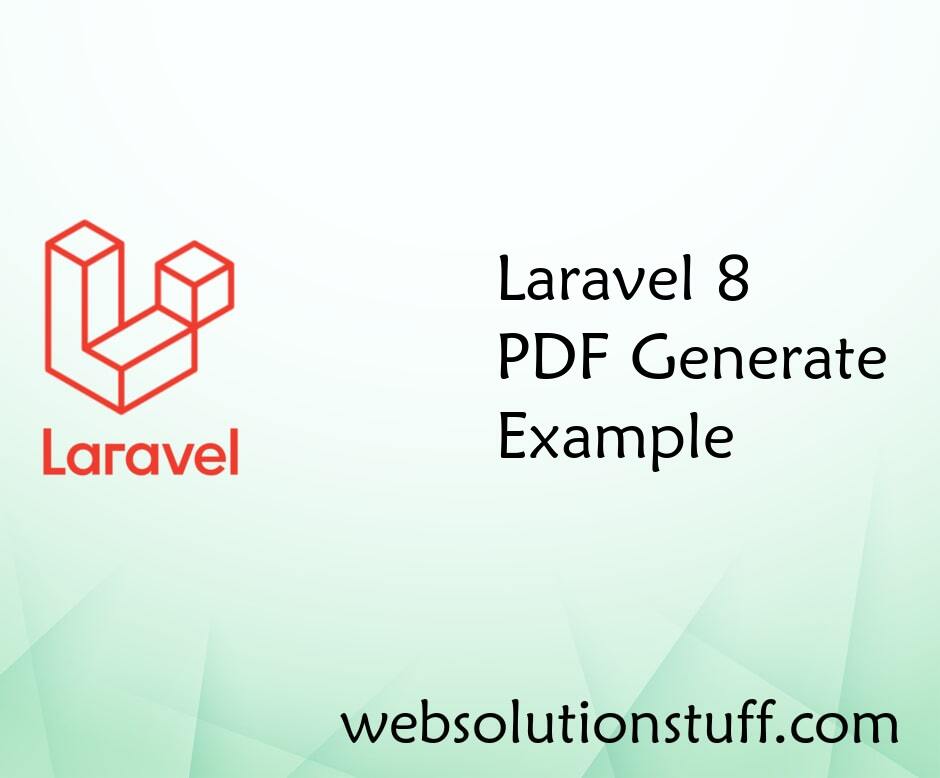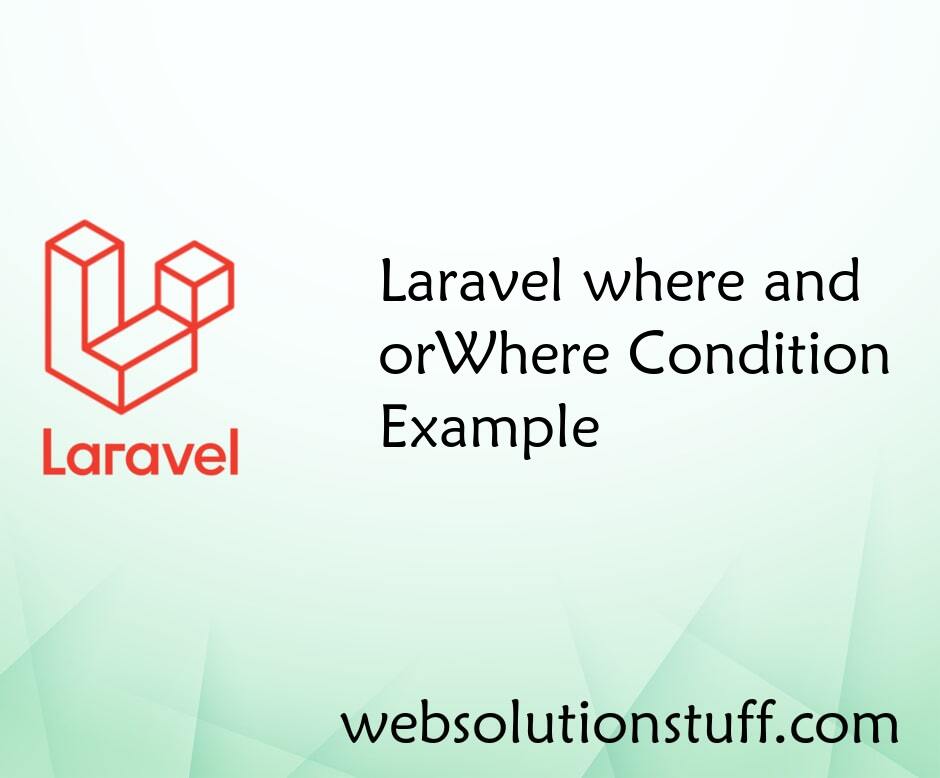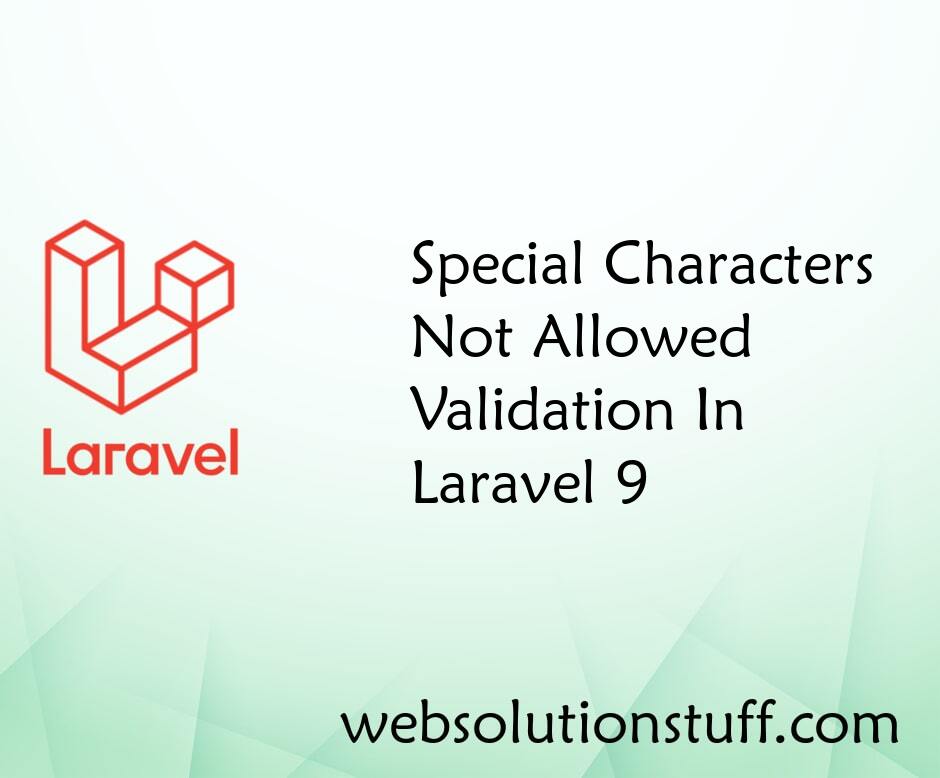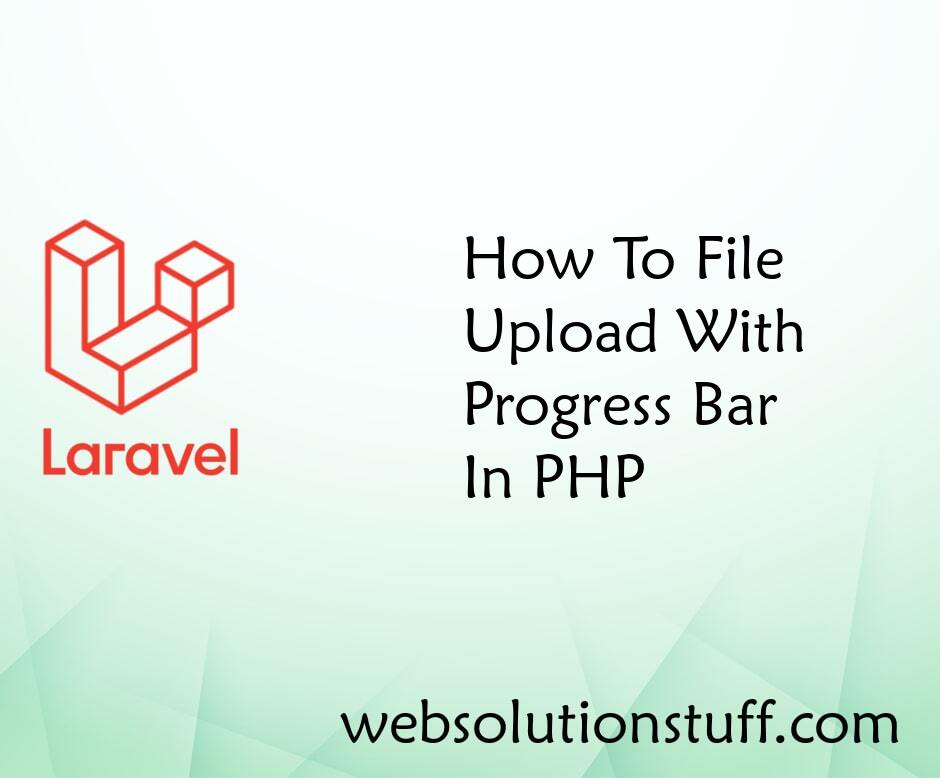How To Install Vue 3 In Laravel 9 With Vite
Websolutionstuff | Oct-10-2022 | Categories : Laravel VueJs
In this article, we will see how to install Vue 3 in laravel 9 with vite. In the previous article, we will install laravel 9 with vue 3. So, we will be installing vue 3 in laravel 9 latest version. Laravel 9 has major changes. Vite has replaced Laravel Mix in new Laravel installations when bundling assets. There is no more webpack.mix.js file in the laravel root in the place of the webpack.mix.js file vite.config.js file is introduced.
Vite is a modern front-end build tool that provides an extremely fast development environment and bundles your code for production. Before transitioning to Vite, new Laravel applications utilized Mix, which is powered by webpack. Vite is used to bundle your application's CSS and JavaScript files.
Vue.js is an open-source model–view–viewmodel front-end JavaScript framework for building user interfaces and single-page applications it is lightweight and easy to use and learn.
So, let's see laravel 9 install Vue 3 with vite.
Step 1: Install Laravel 9
Step 2: Install NPM Dependencies
Step 3: Install Vue 3
Step 4: Configure Vite and Update vite.config.js
Step 5: Compile the assets
Step 6: Create Vue 3 App
Step 7: Create Vue 3 Component
Step 8: Add Vue 3 Component and Vite Directive in Laravel Blade
Step 9: Add Route
In this step, we will install laravel 9 using the following command.
composer create-project --prefer-dist laravel/laravel laravel-9-vite-vue3
Now, we will install NPM using the following command.
npm install
In this step, we will install vue 3 in the laravel 9 application. vue-loader is a loader for webpack that allows you to author Vue components in a format called Single-File Components
npm install vue@next vue-loader@next
Now, we will install vitejs for Vue 3 in laravel 9. This plugin provides the required dependencies to run the vuejs application on vite.
npm i @vitejs/plugin-vue
Now, we will open vite.config.js and add the below code in that file and also import the laravel-vite-plugin.
// vite.config.js
import { defineConfig } from 'vite';
import laravel from 'laravel-vite-plugin';
import vue from '@vitejs/plugin-vue'
export default defineConfig({
plugins: [
vue(),
laravel([
'resources/css/app.css',
'resources/js/app.js',
]),
],
});
Now, after installing the vue 3 we will run dev using the following command. Also, starts a vite server on http://localhost:3000. you can not open it in the browser as it is for vite hot reload and it runs in the background and watches the assets of your application like js and CSS.
npm run dev
In this step, we will create vue 3 app. In resources/js/app.js we will import vue and create the app.
// app.js
require('./bootstrap');
import {createApp} from 'vue'
import App from './App.vue'
createApp(App).mount("#app")
In this step, we will create a file name App.vue in the JS file.
<template>
Laravel 9 install vue 3 with vite - Websolutionstuff
</template>
In this step, we will create the app.blade.php file.
resource/views/app.blade.php
<!DOCTYPE html>
<html>
<head>
<meta charset="utf-8">
<meta name="viewport" content="width=device-width, initial-scale=1">
<title>How To Install Vue 3 In Laravel 9 With Vite</title>
@vite('resources/css/app.css')
</head>
<body>
<div id="app"></div>
@vite('resources/js/app.js')
</body>
</html>
In this step, we will add a route in the web.php file
<?php
use Illuminate\Support\Facades\Route;
/*
|--------------------------------------------------------------------------
| Web Routes
|--------------------------------------------------------------------------
|
| Here is where you can register web routes for your application. These
| routes are loaded by the RouteServiceProvider within a group which
| contains the "web" middleware group. Now create something great!
|
*/
Route::get('/', function () {
return view('app');
});
Also, we will change the .env file.
APP_URL=http://localhost:8000
Run the server using the following command.
php artisan serve
You might also like:
- Read Also: Laravel Firebase Push Notification
- Read Also: How To Validate Max File Size Using Javascript
- Read Also: How To Integrate Paypal Payment Gateway In Laravel
- Read Also: Laravel 9 User Roles and Permissions Without Package
Recommended Post
Featured Post

Laravel 8 PDF Generate Example
In this article, we will see a laravel 8 pdf generate example. For generating PDF file we will use the laravel-dompdf pa...
Oct-17-2020

Laravel where and orWhere Cond...
In this article, we will see laravel where and orWhere condition example. we will give you a very simple example of...
Jan-11-2021

Special Characters Not Allowed...
In this article, we will see special characters not allowed validation in laravel 9. Here, we will learn special ch...
Dec-23-2022

How To File Upload With Progre...
In this article, we will see how to file upload with a progress bar in PHP using ajax jquery. The file upload...
Sep-21-2022